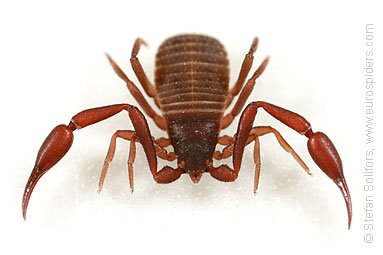Beecarer
House Bee
I recently learned about the Pseudo scorpion and how they coexisted in harmony with the bees before the use of insecticides, open mesh floors etc to control Varroa mite levels. In the most recent edition of 'The Four Seasons' published by the Native Irish Honey Bee Society there is an article written by Ron Hoskins titled 'Varroa-tolerent Honeybees?' makes very interesting reading. He has no colony losses and has not used chemicals on his hives for 20 years. It just seems the more you read and learn about the chemicals we use for the treatment of Varrora they are causing mayhem to the natural order of defense that nature will always provide.
https://www.youtube.com/watch?v=y1zdancXRDg
Pseudo scorpion Vs Varroa destructor - Video in the link above
When checking Varroa levels around the solstice just past I had a closer look on what creatures are inhabiting the insert tray and found this little fella tipping about, not quite a Pseudo scorpion but interesting all the same.


Have many people on here decided to go chemical free and instead decided to pay close attention to see which of their colonys are grooming mites and then breed from these colonys?
https://www.youtube.com/watch?v=y1zdancXRDg
Pseudo scorpion Vs Varroa destructor - Video in the link above
When checking Varroa levels around the solstice just past I had a closer look on what creatures are inhabiting the insert tray and found this little fella tipping about, not quite a Pseudo scorpion but interesting all the same.


Have many people on here decided to go chemical free and instead decided to pay close attention to see which of their colonys are grooming mites and then breed from these colonys?
Last edited:






 with the last sentence. It doesn't do any parasite or any pest any good if the host species is destroyed. Mites have a shorter lifecycle, so should be quicker to adapt to a new host than the bees. But the adaptation will probably only be local, and in time the best adapted will be the ones to survive. If we keep moving bees (and mites) around then we're messing up their chances.
with the last sentence. It doesn't do any parasite or any pest any good if the host species is destroyed. Mites have a shorter lifecycle, so should be quicker to adapt to a new host than the bees. But the adaptation will probably only be local, and in time the best adapted will be the ones to survive. If we keep moving bees (and mites) around then we're messing up their chances.